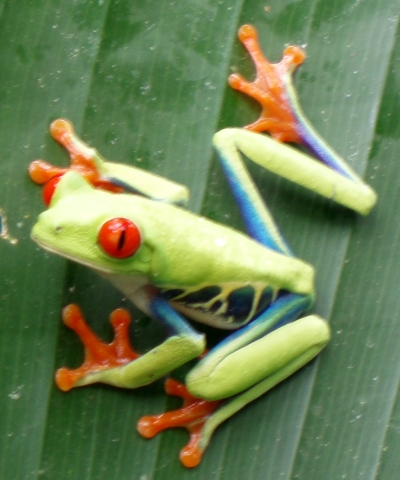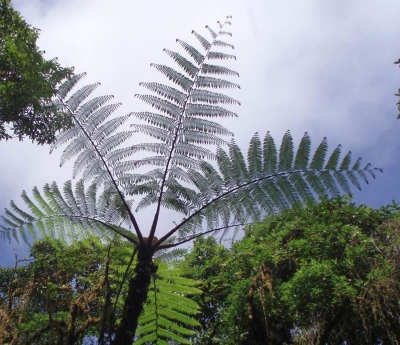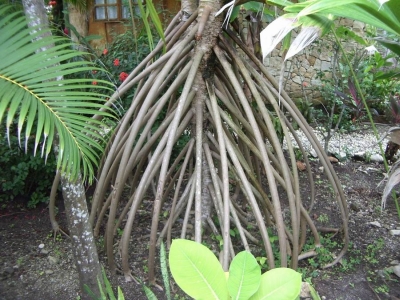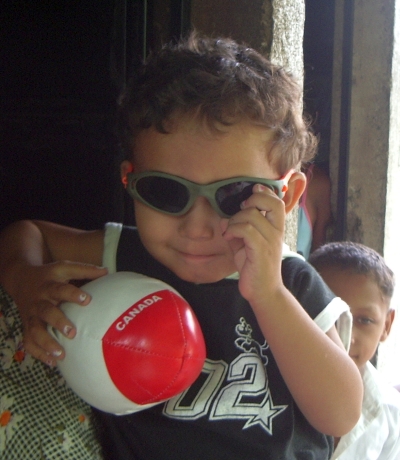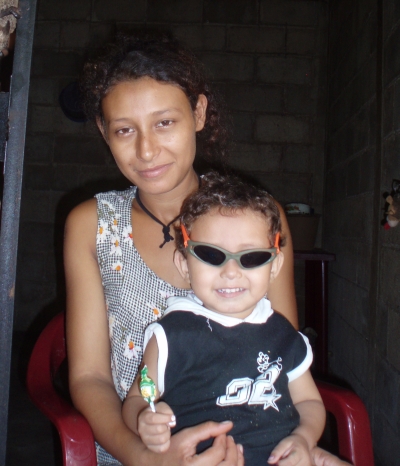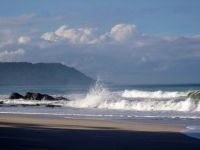
July 3 - 27, 2009
The Reluctant Traveler embarked on a trip to Central America in July 2009 as the
trusty side kick and porter to Lady J.
The trip lasted 3 weeks and we visited the countries of Guatemala and Costa Rica.
Although the two countries are less than 900 km apart, they are separated by 3
other countries - Honduras, Nicaragua and El Salvador. Central America is a poor
cousin to it's northern neighbours and european cousins, but the difference between
Costa Rica and Guatemala is stark.
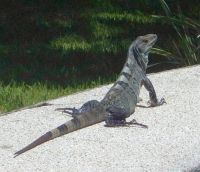
Both offer beautiful green mountain terrain with amazing volcanos, hot springs, trees,
flowers, birds, bugs and lizards. Costa Rica is a very popular tourist destination.
Guatemala is not - unless you include the considerable number of people with mission or
charity goals in mind.
We arrived in Guatemala to visit a number of children that we and our friends
sponsor through World Vision and Wereld Ouders. There were six in total,
five in Guatemala and one in Costa Rica.
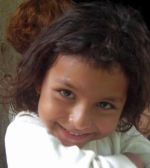
In 1949 Costa Rica abolished its army after a very nasty civil war. It was a good
move. Today Costa Rica is the most prosperous country in Latin America,and scores one of
the highest ratings on the Human Development Index Scale for all of Latin America. It
has even been ranked as the
happiest country
in the world.
Guatemala is another story. Once the capital of the spanish Latin America empire, it was
initially quite prosperous. Isolated Costa Rica was then one of the poorest regions.
During the railroad boom of the late 1800's the government of Costa Rica contracted
a dodgy railroad entrepreneur to build a railroad across from San Jose to Limon.
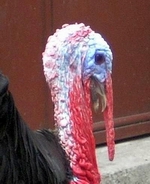
The terrain is tough and the project took much longer and cost more than expected.
Banana trees were planted along railroad route as a cheap food for the workers.
Eventually the money ran out and the project needed to be refinanced. The nephew
of the railroad entrepreneur ended up with 800,000 acres of tax free land along
the railroad line and a 99 year lease on the operation of the train route.
The trains never made much on passenger traffic, but the new
railroad operator/land-owner made a fortune exporting bananas to the United States.
This enterprise eventually morphed into the United Fruit Company, which went on to become
the largest employer in Latin America. United Fruit also became largest land owner
in Guatemala.
The United Fruit Company became infamous for its heavy meddling in governments,
giving inspiration the term Banana Republic. Vast tracts of land under its
ownership remained uncultivated in Guatemala even as the people struggled
to feed themselves.
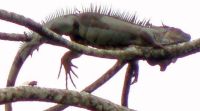
The power and influence of United Fruit reached into the highest levels of
U.S. government. The directors lobbied hard to convince the Truman and Eisenhower
administrations that the elected government of Guatemala was a communist regime.
In 1954, the democratically elected Guatemalan government of Colonel Jacobo
Arbenz Guzmán was toppled by U.S.- backed forces lead by Colonel Carlos Castillo
Armas who invaded from Honduras. Assigned by the Eisenhower administration,
this military opposition was armed, trained and organized by the CIA.[1]
The Guzmán government was pressing to seize and expropriate unused farmland
that had been set aside earlier for private corporations. United Fruit was the biggest
land holder in Guatemala.
That set off a 30 year civil war that pretty much explains Guatemala today.
By 1972 United Fruit had sold off all of its land holdings in Guatemala.
There is democracy now, but the land is unevenly divided and much of the land
still sits fallow, for rent, for anybody that has the money.
Guatemala suffers tremendously from malnutrition. Guns are everywhere and there are
few safe places. But the army is still there, and the helicopters.
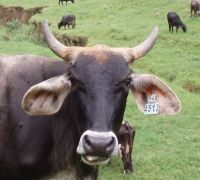
Costa Rica has a similar geography, climate and soil. But there are
bountiful farms along side ecological preserves; the people
are happy and helpful, and the country is relatively safe.
No army and no gun-boat diplomacy by the Americans. Now that's the way to develop
a country.

Most of the scenic pictures that follow are from Costa Rica. We spent about 6 days
in Guatamela and 2 weeks in Costa Rica.
We rented a 4 wheel drive to get around in Costa Rica,
a pretty standard mode of travel. The major roads are not too bad but the secondary
roads can be iffy. We picked one route to avoid taking a ferry. There were 3 creeks
that we had to cross on this "road" that often resembled a path cleared through the
forest by a flash flood.
And it's a really good idea to know spanish. We bought this great (expensive) road map,
made from a water-proof parchment no less,that showed all the major and secondary roads in
Costa Rica.
The only problem is that there are virtually no road signs in the
country. We had to ask for directions to
every destination anyways. Mental note - must learn GPS technology - easier than
spanish.
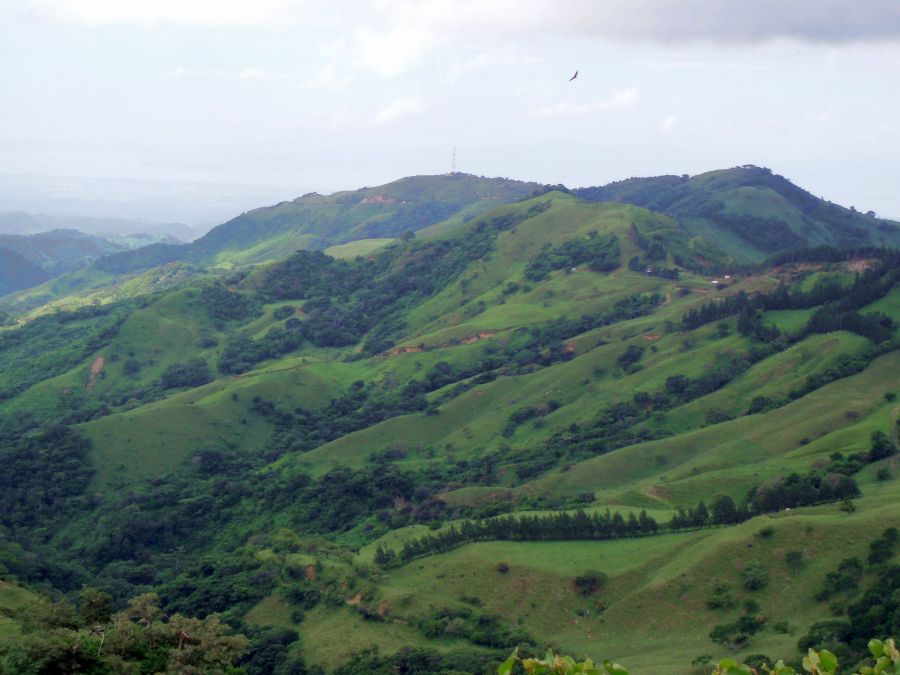
Here is a shot of the Costa Rica countryside. The Quakers immigrated here to farm in
the mid 20th century because, in part, Costa Rica did not have an army.
This area has a lot of pasture land. The cattle here are a bit different here from home
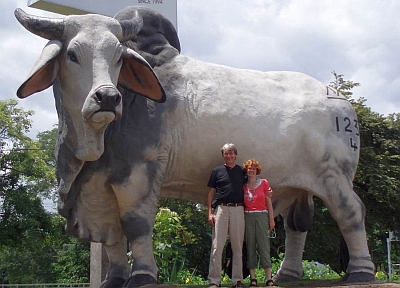
Costa Rica has its kitch too. This work of art was at a restaurant that
specialized in BBQ meats of all kinds (except lizards).
The rain forest jungles have amazing vegetation and insects. We tried to take
pictures of the insects but since both of our cameras and our talents
for photographing bugs leave much to be desired, there are none.

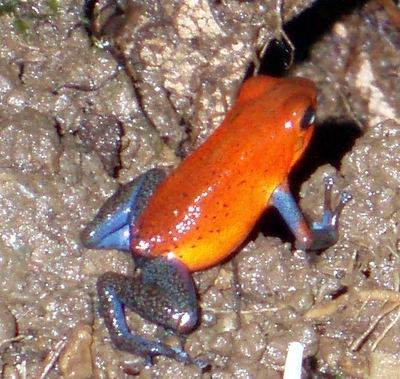
We found these frogs with the help of the proprietor of a small ecological preserve.
Both frogs are quite tiny.
We also spotted a couple of sloths in our travels. They both
looked like a hairball coughed up by some giant cat. No good pictures of sloths here.
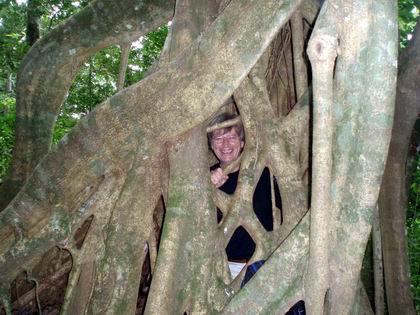
The strangler fig trees were the most interesting. They start as a vine that wraps
itself around a host tree, often killing the host. The host tree can crumble away with time,
leaving only the lattice of the now giant strangler fig remaining.
Iguanas are plentiful as are many gorgeous birds. Although we have no pictures of
the beautiful birds because we have no telephoto lens, we do have some pictures of
one of the ugliest birds on the planet.
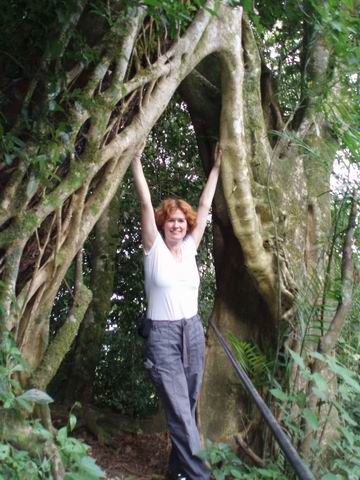
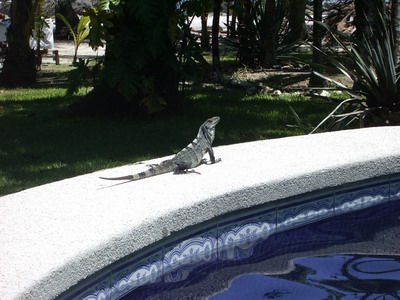

Central America has many beautiful birds, including the resplendent Quetzal, which
adorns the Guatemalen bank notes and gives the currency its name.
My camera is 5 years old, has a 3x zoom lens, and takes the picture about 5 seconds
after you press the button. So even if we did see a resplendent Quetzal, its not likely
that we would have a good picture of it.
But we did manage to take a few pictures of one of the
ugliest birds I have even seen - the domestic turkey, the kind most of us like to eat at
Thanksgiving. This bird was strutting around the
yard with this overhang of flesh above its beak that resembled a stretched blob
of red snot.
I'm not sure why this bird looks the way it does, or if appearance really matters
when it comes to sexual attraction between turkeys, but I welcome any comments from
Darwinists or evolutionary experts (or even creationists) to explain why evolution
(or God) made this bird so ugly.

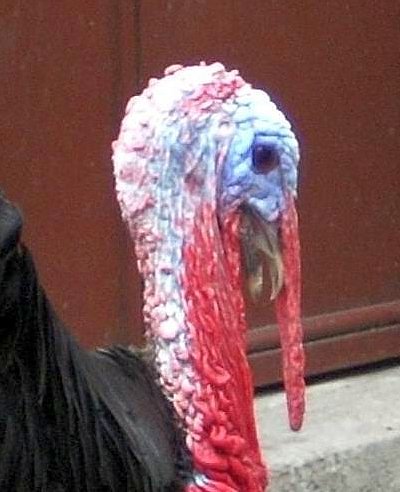
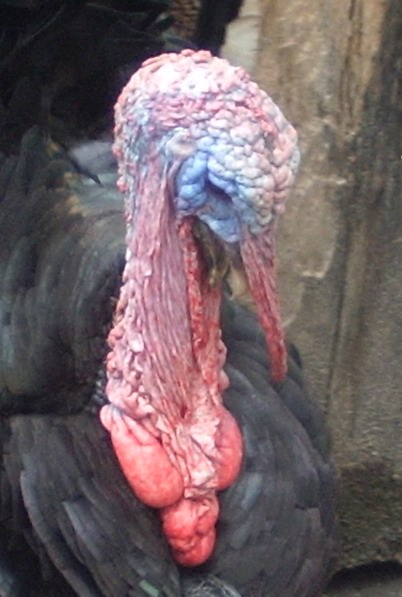

Costa Rica also has its volcanoes, boiling mud pits, and natural hot springs. We
visited the La Fortuna hot springs, which have some 23 pools at different tempuratures,
all natural and with no sulphur smells.
The hot mud is supposed to be good for the complexion. Do you think it would help
this turkey?
Now for some pictures of the kids in Guatamela.
One of the cool things about my old Pentax is that the LCD flips out and pivots
around so you can view yourself when
taking a self portrait.
The kids thought this was pretty cool too, as I was taking pictures of them.
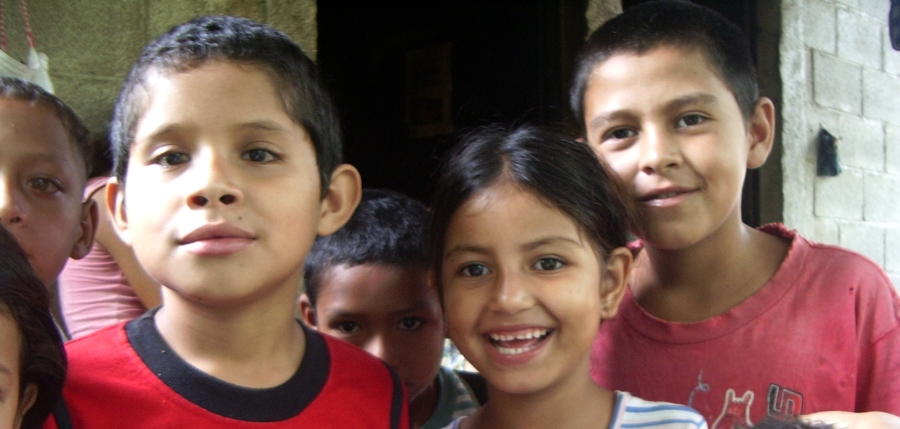
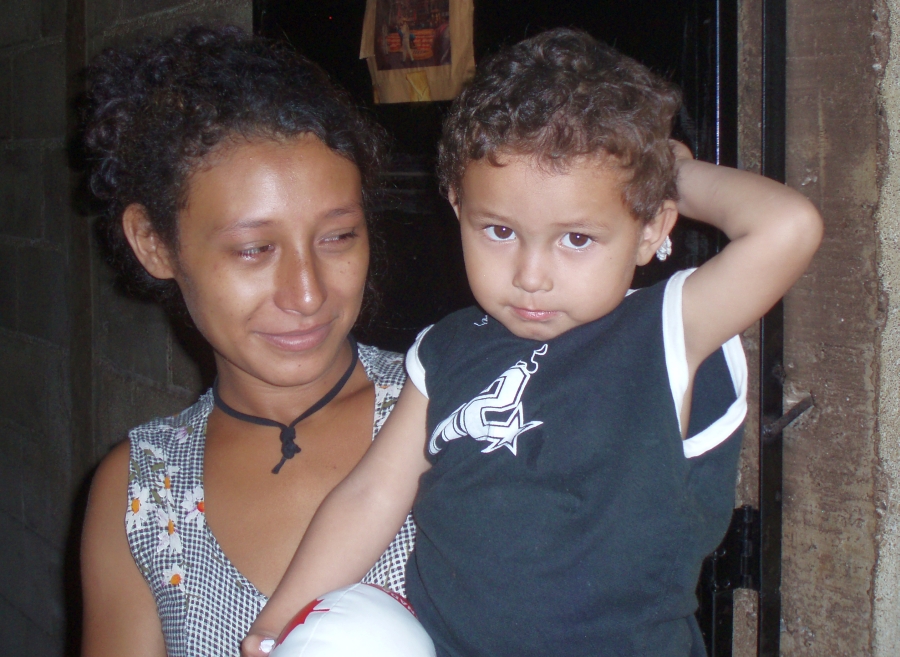
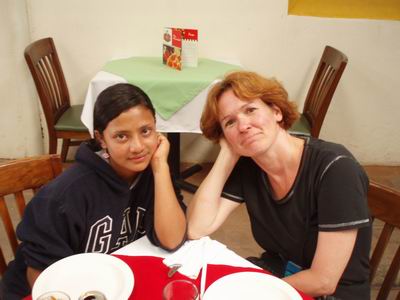
One of our sponsor children lives at an orphanage not far from Antigua. We took the
local bus from the orphanage to Antigua for a pizza lunch (her request and actually she
took us to Antigua). After pizza we went to the market and bought some shoes.
At the market was a midway. We all went for a ride on the ferris wheel (which they
called a Chicago wheel). We happily paid our admission and sat down in this
sheet-metal angle-iron swing contraption for three.
Take a ride on the Chicago wheel!
We were the first of maybe six groups that had queued for the next ride.
On the way to the top of the arc, I could not help but notice how quaint the
construction of this Chicago wheel was, mostly constructed from simple angle iron.
Christmas tree lights were fastened to the frame with duct tape. I was grateful it
was daytime and the lights were off.
At the top of the arc, as the wheel was being loaded, I rocked our swing back and forth.
Screams from the ladies. Stop that! I smile, life is good.
The first few rotations were at a liesurely pace, like most ferris wheels. It's cool to
be the highest people in the midway for that brief moment at the top of the arc.
Then the operator cranked up the speed. This was fun at first. I had never been on a
ferris wheel that doubled as a thrill ride. More screams of fear.
After about a dozen rotations at high speed, my stomach began to feel queasy, and
I had flashbacks of the first time I had traveled by plane. I was about 10 years old
and the plane was a dual propellor DC-3 vintage machine. It was the only
time I was airsick in my life, and I made good use of the bag they once provided
with every seat.
Riding on a Chicago wheel at high speed, I figured, was a good simulation for the early
days of air travel. I postioned my backpack in front of me and discreetly opened it,
just in case.

This Chicago wheel is driven by loop of steel cable twisted in a lopsided figure
eight. At one end is an electric motor spinning a small pulley, at the other
end, attached to the frame of the Chicago wheel itself, is a giant pulley.
I watch sections of this cable advance through enough rotations to observe the
condition of the cable along its entire length. This adds to the sense of thrill.
There were several spots where a couple (or maybe five) strands of the steel cable
broken and splayed out slightly, not enough to be bent backward yet. I was desparately
trying not to puke in my backpack as I was acquiring this information.
The ride mercifully came to a stop. But there were not enough customers lined up
for the next round, so the operator decided to give us some more thrills with
another round of high speed rotations, this time in reverse!
I cling to my backpack. The hallucinations from my first plane trip dissolve, replaced
with visions of this cable snapping and our Chicago wheel jumping off its moorings and
rolling through the market square like a giant bicycle wheel, crushing everybody in
its path.
Eventually the giant runaway Chicago wheel hits a bus it can't roll
over and comes to a stop. For a brief, glorious moment we are once again at the
top of the arc, before we begin the slow motion plummet as the
Chicago wheel crashes into the market square below.
I try real hard not to puke. And if I don't puke, then I am going to die. This emotional
roller coaster repeats itself with every backwards rotation. The Chicago wheel continues
its high speed reverse spin for a very long time.
Eventually the ride comes to an end and I still have not puked. I stagger off, clutching
my backpack in front of me, just in case. We have no photos of the Chicago wheel,
it is an instrument of the devil.
I had to pass on the next ride. The best I could do was take a picture of it
while clutching my backpack on my chest, just in case.












